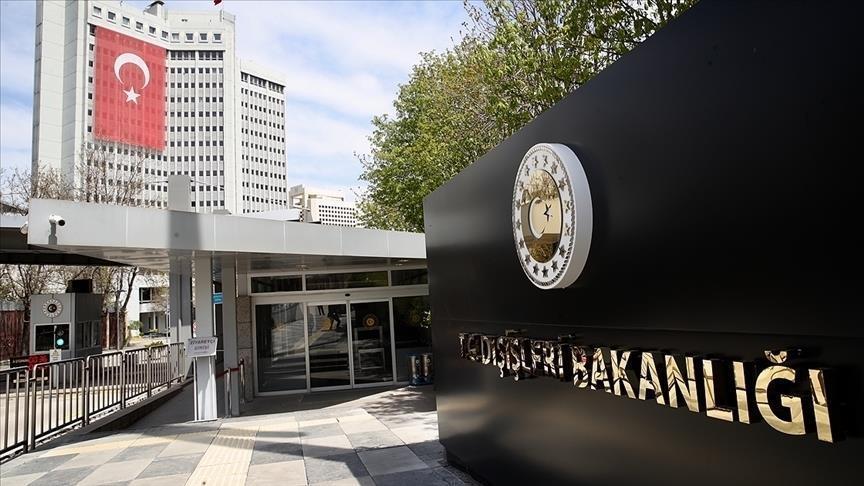
The Turkish Foreign Ministry on Oct. 19 summoned ambassadors of 10 countries over a joint statement on businessman Osman Kavala’s detention.
“A group of ambassadors in Ankara, who issued a joint statement last night contrary to diplomatic practices, were summoned to the Ministry of Foreign Affairs,” the ministry said in a statement.
The ministry defined the ambassadors’ statement on social media as “beyond limits” and said the move regarding a “legal process carried out by the independent judiciary is unacceptable.”
Ankara rejected the statement saying that it “attempts to politicize the legal processes and put pressure on the Turkish judiciary” and violates the independence of the judiciary.
Foreign ministry officials emphasized to ambassadors that Turkey is a “democratic state of law that respects human rights and reminded that the Turkish judiciary will not be affected by such irresponsible statements,” the statement said.
The ministry told envoys that those who ignore the decisions of the European Court of Human Rights for some countries that have not been implemented for years, focus only on the cases related to Turkey and especially try to keep the Kavala case on the agenda constantly and persistently, which is an “insincere and double-standard approach.”
“They were warned to stay within the responsibilities of their duties,” the statement said.
In a statement on Oct. 18, Canada, Denmark, Finland, France, Germany, the Netherlands, New Zealand, Norway, Sweden and the United States called for a “just and speedy resolution to his case.”
“The continuing delays in his trial... cast a shadow over respect for democracy, the rule of law and transparency in the Turkish judiciary system,” they said.
The embassies called on Turkey to follow the rulings of the Council of Europe, which has warned that it would launch disciplinary proceedings against Ankara “in the event if [Kavala] is not released before” the human rights body’s next meeting on Nov. 30 - Dec. 2.
Kavala’s next court hearing is expected on Nov. 26.
“The judiciary in Turkey is independent and Turkey is a fully independent country. Those who wish to intervene in the judiciary can continue to fulfill their wishes in their own country,” Vice President Fuat Oktay tweeted on Oct. 19.
Interior Minister Süleyman Soylu slammed the embassies’ statement on Twitter late Oct. 18. “It is not acceptable for ambassadors to make a recommendation or suggestion to the judiciary for an ongoing case,” Soylu said.
“Your recommendation and suggestion throw a shadow over your understanding of law and democracy,” Justice Minister Abdülhamit Gül tweeted late Oct. 18, adding that “no ambassador had the right to make a recommendation or suggestion to our courts.”
“It is this ignorance of limits and boundaries that throws a shadow over the rule of law,” Gül added.
Parliament Speaker Mustafa Şentop and the ruling Justice and Development Party (AKP) spokesman Ömer Çelik also criticized the statement. Şentop said this is stepping out of bounds.
“Statements by diplomats, who work in our country, to influence the Turkish judiciary are unacceptable,” Çelik said.
Kavala was first arrested over criminal charges related to the 2013 Gezi protests. The businessman was later remanded into custody by an Istanbul court as part of a probe into the 2016 defeated coup in Turkey, with prosecutors accusing him of spying.